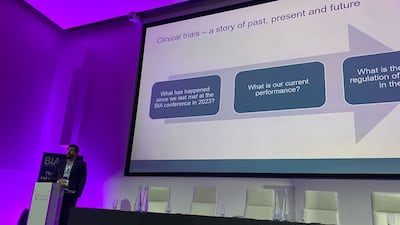Clinical Trials

China has proposed new guidelines designed to head off potential bribery by pharma companies related to the conduct of clinical studies and possible manipulation of outcomes.

The Health Research Authority says its new toolkit explains the differences and similarities in the research approval and set-up processes across the four UK nations so that researchers and sponsors are clear on what they need to do if they want to conduct a study in more than one of the countries.

US FDA Commissioner Robert Califf offers some thoughts on improving the informed consent process during a Patient Engagement Advisory Committee meeting that reflect concerns informed consent documents are too long and complex, but also do not address everything that may be important to patients.

The UK’s drug regulator, the MHRA, is exploring new opportunities to work closer with its counterparts from Australia, Canada, Singapore and Switzerland under the ACCESS Consortium group, with a focus on pre-submission scientific advice.

Transitional provisions have been put in place to ensure the smooth implementation of new trial rules and requirements in Switzerland.

The UK’s Health Research Authority has updated its General Data Protection Regulation “transparency wording template” with more information on how data about research participants would be handled if it is sent abroad.

The EU Clinical Trials Regulation has “so far failed to improve Europe’s competitiveness,” according to a new report commissioned by the pharmaceutical industry body EFPIA.

Oncology staff also said more work is needed before patient registries can be used as an external control in clinical trials, but they strongly encouraged continued investment.

EU regulators have recommended extending a pilot on the use of raw clinical trial data in medicines evaluations after an interim review of the initiative found that using such data improved regulatory decision-making.

New nods for Boehringer Ingelheim’s survodutide, Sagimet’s denifanstat and Mirum’s volixibat bring the FDA’s non-infectious liver disease breakthrough therapy designations to 15, with six designees already approved.

A court order encompassing funding, drug pricing, clinical trials and overall policy implementation aspects is expected to cause a paradigm shift in the treatment of rare diseases in India. Sarepta, Roche and Sanofi are among the companies that have been part of pricing discussions.

Flexibility on the geographic location of clinical trial participants will depend on the underlying reasons the FDA wants diversity in the study, the agency’s Oncology Center of Excellence Director said.

Sponsors can expect to see a copy of final guidance on how to comply with the UK’s new clinical trials regulation in August 2025, while the new framework is set to apply from January 2026.

A US FDA Advisory Committee responded enthusiastically to the potential use of challenge models to enable pivotal trials of novel pertussis vaccines, but most members suggested more refinements are needed before they are ready to use.

Members of the Cardiovascular and Renal Drugs Advisory Committee repeatedly challenged Stealth’s assertion that a new randomized trial in Barth syndrome was not possible, but also said potential functional unblinding and other challenges could compromise a new study.

Slow adoption of alternatives to animal testing in the current decentralized regulatory framework shows the need for a ‘one-stop shop’ at FDA that can provide advice, precedents and qualification programs.

The Cardiovascular and Renal Drugs Advisory Committee voted 10-6 that efficacy had been shown for the ultra-rare disease, but even panelists in the majority questioned whether the product satisfied the threshold requirement for an adequate and well-controlled study.

It is time for a much greater focus on pull incentives to ensure viable market conditions for medicines for neglected diseases that are traditionally regarded as unprofitable.

The US FDA is finalizing a guidance intended to encourage the use of decentralized clinical trial techniques. After the COVID-19 pandemic necessitated adoption of the more patient-friendly approaches, the agency is clearly eager to see them become routine.

Having its own priority review vouchers could serve as an important pull incentive for neglected disease R&D in Europe, although the unpredictable nature of the vouchers may deter some investors.